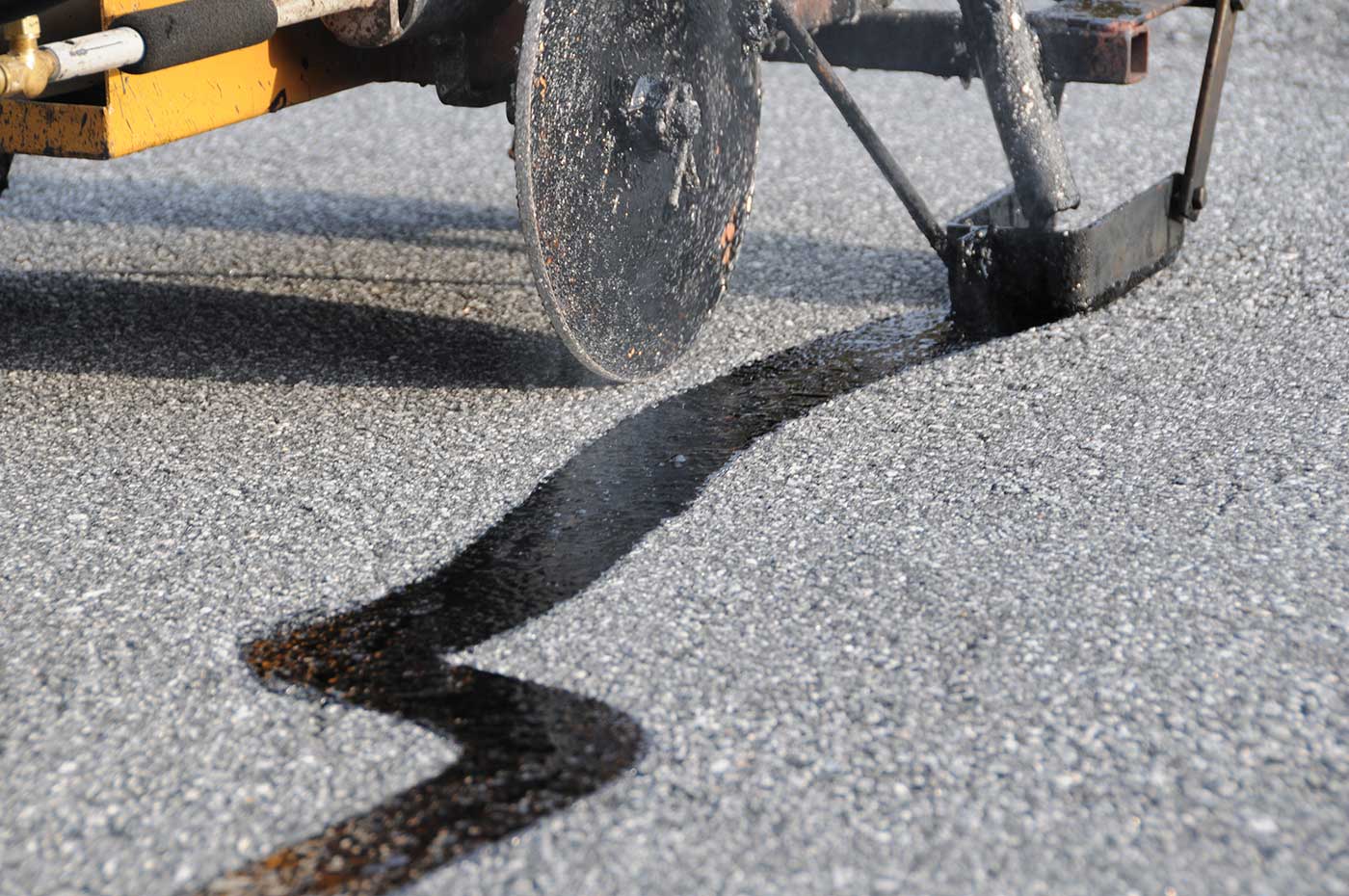Asphalt and Concrete
Spring Maintenance Tips
James Kurpiel Inc. of Hackensack
Ah, the first signs of spring. Robins searching for worms in the back yard. Pansies for sale at the garden centers. Cracks sprouting in the driveway. Not every sign of spring is a welcome one. After winter’s wear and tear, spring thaw brings distress to asphalt and concrete. A well-laid surface should be worry-free but still need occasional touch up to keep it healthy and attractive
 March is just around the corner now and with it comes rising temperatures during the day with more sun beating down on asphalt and concrete driveways, leading to expansion within, and then with the still cold temperatures during the overnight hours you have contraction.
March is just around the corner now and with it comes rising temperatures during the day with more sun beating down on asphalt and concrete driveways, leading to expansion within, and then with the still cold temperatures during the overnight hours you have contraction.
During winter, snow and ice repeatedly freeze and thaw on your asphalt surfaces. If your asphalt contains uneven areas or isn’t graded correctly, the thaw cycle can cause water to pool and seep into your asphalt surface. Since water expands when it freezes, it causes your asphalt to crack. These freezing and thawing cycles may cause home owners and property owners to deal with potholes and cracks; some of the factors of which are moisture, plowing practices, the material itself and the layout of the driveway or lot.
If your driveway is flanked by raised ground, composed of moisture-retaining soil or is full low spots, it could likely need some revision. Having a crown means that the driveway should have a slightly higher spot in the middle, sloping to either side so water runs off as it melts or falls instead of pooling. Water should be able to run away from the driveway in lower spots on either side, sometimes into road ditches.
Early Spring is the time when the most damage to asphalt pavements can occur. During the winter, water within the pavement and aggregate base freezes from the surface of the pavement down to the sub-grade. Spring thaw occurs as the frozen pavement begins to thaw from the surface of the pavement down to the sub-grade.  While the sub-grade is still frozen, water from the thawing pavement is thereby trapped in the materials below the pavement. his sub-grade, then being saturated from the that can significantly weaker, vehicular traffic loads to easily damage the pavement.
While the sub-grade is still frozen, water from the thawing pavement is thereby trapped in the materials below the pavement. his sub-grade, then being saturated from the that can significantly weaker, vehicular traffic loads to easily damage the pavement.
So how do I protect my driveway and/or investment? Preventative maintenance is a good start to protecting your pavement. Sealing cracks, and filling potholes will most of the water from reaching the sub-grade. Evaluate your property’s or driveway layout. Find out where is all of that water going and also where is it coming from? Is it seeping into the cracks of its way to a storm sewer? Water is a natural enemy of asphalt pavements, and it is best to make sure the drainage around your snow piles is sufficient to quickly get the water off of the pavement.
Here are some key facts to consider:
- Asphalt is naturally porous, which means that it absorbs water from the environment. When water penetrates asphalt in winter, it can expand and freeze beneath the surface of the driveway, causing cracks and other problems. The more cracks appear in your driveway, the more water it can absorb, leading to further cracking and deterioration of the asphalt. These problems can significantly shorten the service life of your driveway.
- Winter can be very hard on asphalt because there is routinely ice and snow on the ground.
- All sorts of things can cause your driveway to crack, including too much weight, underlying tree roots, soil movement and, of course, extremely cold weather. Since it is porous, concrete can be breached by rain or snow, which will then expand during freezes and contract once the weather warms. Repeated expansion and contraction during the fall and winter months can cause a driveway to crack, deteriorate and even flake.
 Avoid using de-icers containing ammonium sulfate, magnesium acetate and ammonium nitrate on concrete, which can erode the surface. The same goes for lawn chemicals, which shouldn’t be allowed to come in contact with concrete. Chemicals, including gas and oil, also can damage asphalt.
Avoid using de-icers containing ammonium sulfate, magnesium acetate and ammonium nitrate on concrete, which can erode the surface. The same goes for lawn chemicals, which shouldn’t be allowed to come in contact with concrete. Chemicals, including gas and oil, also can damage asphalt.- Driveways also should be protected from creeping vegetation. Trim grass from driveway edges and keep tree roots from pushing the surface from below.
- Proper drainage is also vitally important. Having proper drainage in place allows for runoff to help eliminate standing water. Even driveways that appear flat have a slight grade that allows for drainage.
- Another important form of drainage is actually your gutters. Keep the spouts pointed away from your driveway. If left pointed towards your driveway, melting snow and ice can begin flowing onto the asphalt. Not only can this cause damage to your asphalt, but, it can also pose as a safety hazard.
James Kurpiel Inc / Asphalt and Paving Contractor
19 Orchard St. – Hackensack, N.J. 07601 / Toll Free at 1-800-273-9769 / (201) 342-3170







Leave A Comment
You must be logged in to post a comment.